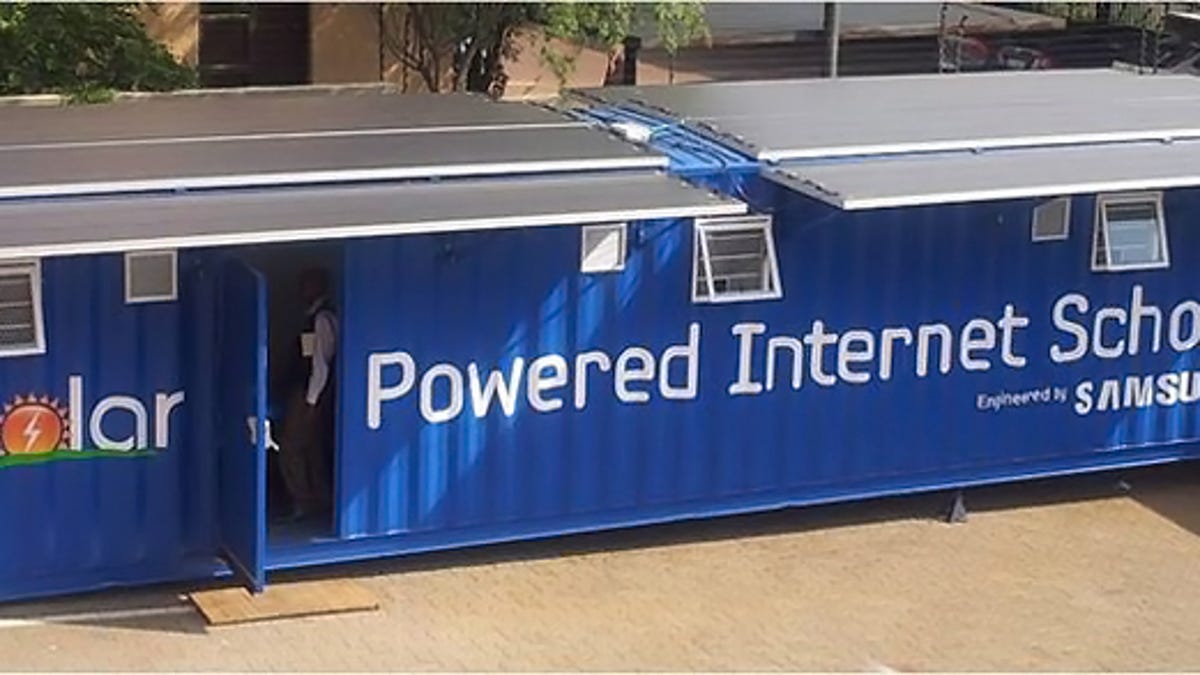Samsung solar-powered school shines in rural South Africa
Samsung turns a shipping container into a portable wired classroom to bridge the divide between rural and urban South African schools.

There's something new(ish) under the sun in the rural South African village of Phomolong, where Samsung has built a gadget-laden solar-powered classroom -- in a renovated shipping container.
The Solar Powered Internet School -- a product of Samsung's corporate-social responsibility initiative -- has solar panels on the roof that can generate nine hours of electricity a day. That power's needed to juice the electronics inside -- a 50-inch electronic board, Samsung Internet-enabled solar-powered notebooks, Samsung Galaxy tablets, and Wi-Fi cameras.
The portable classroom, which supplements Phomolong secondary school near Johannesburg, measures almost 40 feet long and can fit up to 21 students at a time.
The school can be moved by truck so kids in other remote areas with little or no access to electricity can benefit from the curriculum and connectivity. Solar panels on the roof and sides are made from a rubber-like substance, rather than conventional materials, so the structure can be transported without the panels breaking. The structure also has insulation, as well as a ventilation system, to maintain a comfortable temperature.
Though Samsung installed the school last year, the company only recently shared extensive details of it on its official global blog. Earlier this year, the school was named African Solar Project of the Year by the Africa Energy Awards, which celebrate the growth and success of energy projects in Africa.
In this promotional video for the school, students share their excitement at learning basic computer skills and being able to access the Internet from the classroom rather than having to go to the library to connect.
"I can remember the very same day that they told us... that we're going to have a computer lab," an exuberant student named Lefa recalls. "Everybody was going like 'Ahh!' I just cannot explain how all the learners are so excited... I can say purely greatness, happily madness."
Unlike gadgets such as the OLPC XO tablet that are developed specifically for wide distribution to children in the developing world, the Samsung computers in the mobile school are standard consumer offerings.
In addition to its educational efforts in Africa, Samsung recently announced plans to double down on its smartphone sales and marketing efforts on the continent.
"We're entering new countries... we're investing into more territories, and while other companies are moving out of the African market, we're walking into the big countries and establishing an entity by investing in infrastructure and human resources," CapitalFM Business quoted Manoj Changarampatt, Samsung Business Leader for East and Central Africa, as saying.
Unlike in Europe, Changarampatt added, many Africans are likely to have their inaugural Internet experiences on a smartphone rather than a personal computer.

